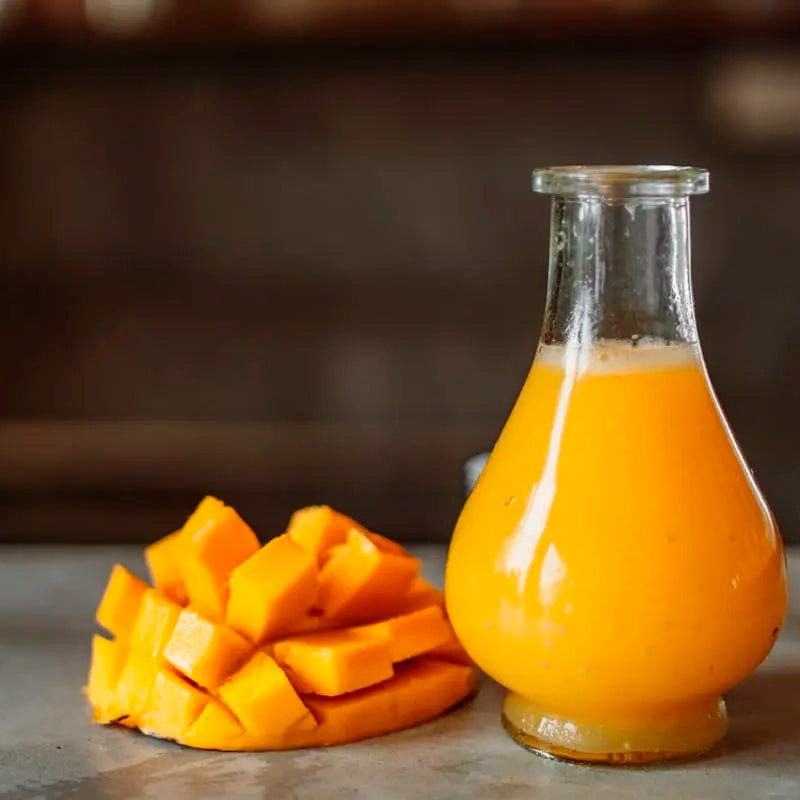
Organic Juices vs. Store-Bought: What You Need to Know Before You Sip
Organic juices vs. store-bought: Understanding the difference
Organic juices are made from fruits and vegetables grown without synthetic pesticides or fertilizers, while store-bought juices can contain additives and preservatives. Organic juices are often fresher, richer in nutrients, and free from harmful chemicals, providing a more natural and healthy option. On the other hand, store-bought juices are mass-produced, which might lead to a decrease in nutritional value compared to fresh organic juices. Choosing organic juices can support sustainable farming practices and promote environmental conservation.
Benefits of choosing organic juices
Organic juices are made from fruits and vegetables grown without synthetic pesticides or fertilizers. They are free from harmful chemicals, making them safer for consumption. Organic juices are richer in essential nutrients, antioxidants, and vitamins compared to store-bought juices. Choosing organic juices supports sustainable farming practices and helps protect the environment.
Nutritional value comparison: Organic vs. store-bought
Organic juices are made from fruits and vegetables grown without synthetic pesticides and chemicals, while store-bought juices may contain added sugars, preservatives, and artificial flavors. Organic juices are typically higher in nutrients such as vitamins, minerals, and antioxidants, as they are made from fresh produce. On the other hand, store-bought juices often undergo pasteurization and processing, which can reduce their nutritional value. When choosing between organic and store-bought juices, consider opting for organic varieties to get the most nutritional benefits.
Environment impact: Organic juices vs. store-bought
Organic juice production has a lower environmental impact compared to store-bought juices. Organic farming practices emphasize using natural fertilizers and avoiding chemicals that can harm the environment. In contrast, conventional farming for store-bought juices may rely on pesticides and synthetic fertilizers that can pollute soil and water. Choosing organic juices supports sustainable agriculture and helps reduce ecological damage.
Ingredients to watch out for in store-bought juices
Store-bought juices often contain added sugars, artificial flavors, and artificial colors. These ingredients can compromise the nutritional value of the juice and may not be as beneficial for your health. Additionally, some store-bought juices may contain preservatives to increase their shelf life, which can also impact the freshness and quality of the juice. Reading the labels of store-bought juices can help you identify these ingredients and make informed choices about the products you consume.
Any hidden additives in store-bought juices?
Store-bought juices can contain hidden additives like sugar, artificial flavors, and colors. These additives are used to enhance taste and appearance but can be unhealthy. Look out for terms like “high-fructose corn syrup” or “artificial sweeteners” in the ingredient list.
Are organic juices worth the cost?
Organic juices may be more expensive than store-bought ones, but they often come with added benefits. Organic juices are made from fruits and vegetables grown without synthetic chemicals. This means they have higher nutrient content and are free from harmful pesticides. On the other hand, store-bought juices may contain additives and preservatives. Organic juices are worth the cost if you prioritize your health and want to consume products free from potentially harmful chemicals.
How to identify organic juices in the store
Look for the USDA Organic label on the juice bottle. This label ensures that the juice has met specific organic standards set by the USDA. Another indicator is the word “organic” in the list of ingredients. If the ingredients are all organic, the juice is likely to be organic. Buying from trusted brands or local organic juice producers can also help you choose authentic organic juices.
Making your own organic juices at home
Making your own organic juices at home is a great way to ensure you know exactly what is going into your body. By using fresh, organic fruits and vegetables, you can create delicious and nutritious drinks at a fraction of the cost of store-bought options. Homemade juices are free from added sugars, preservatives, and artificial flavors or colors, giving you full control over your beverage’s ingredients. Plus, you can experiment with different combinations to find flavors that you love.
Final thoughts: Making an informed choice
When it comes to choosing between organic juices and store-bought options, it’s essential to prioritize your health and well-being. Organic juices are free from harmful chemicals and pesticides, making them a healthier choice for your body. On the other hand, store-bought juices may contain additives and preservatives that can impact your health in the long run. By opting for organic juices, you are not only supporting sustainable farming practices but also ensuring that you are consuming a purer and more natural product. Remember, the choice between organic and store-bought juices ultimately boils down to your preferences and priorities. Make sure to consider factors like taste, budget, and convenience before making a decision.

